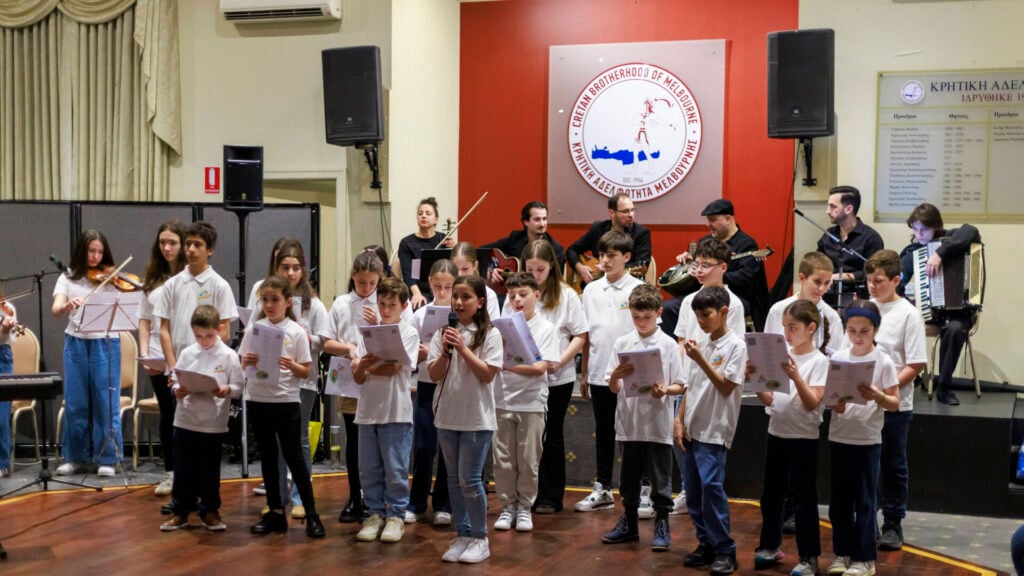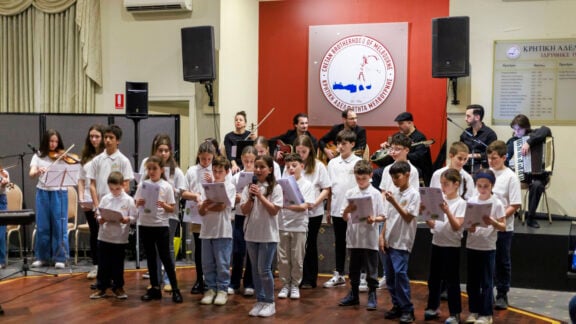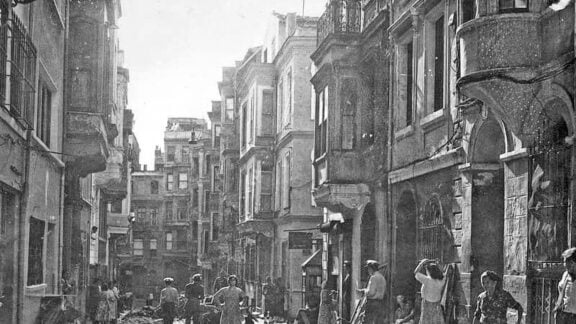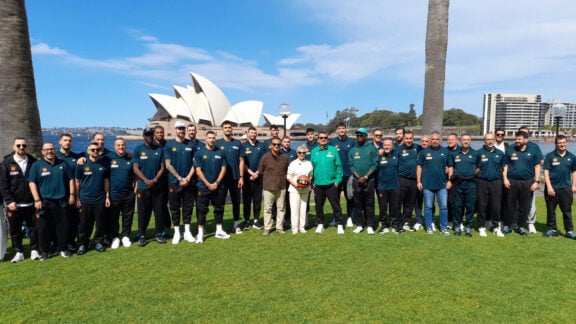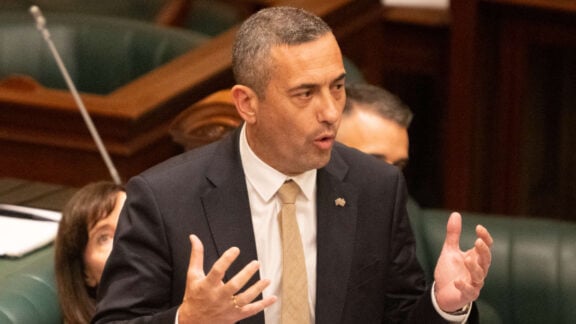The Hellenic Writers’ League of Australia convened a profound and stirring tribute to two of the most emblematic composers of the twentieth century, Manos Hatzidakis and Mikis Theodorakis, on the centenary of their birth on Saturday.
The hall of the Cretan Brotherhood of Melbourne overflowed with members of the Greek community eager to honour the memory of two men whose art has come to define the very soundscape of modern Hellenism.
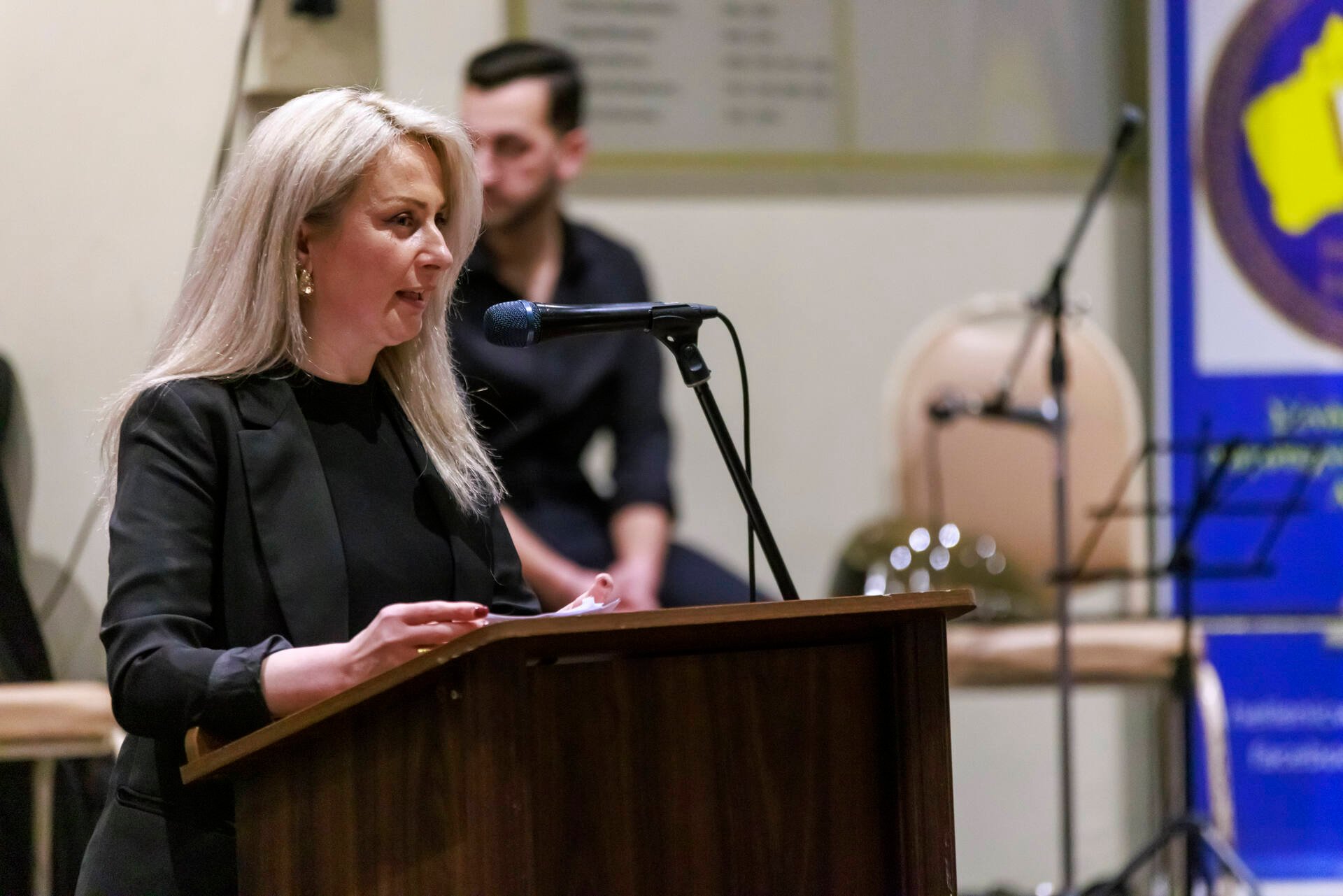
The audience reflected the full breadth of the community. Those who had lived with the music of Hatzidakis and Theodorakis for decades sat beside children and adolescents who encountered it for the first time.
The intermingling of generations created an atmosphere both moving and proud, a living demonstration that the melodies of these two masters continue to inspire and to bridge the divide of age.
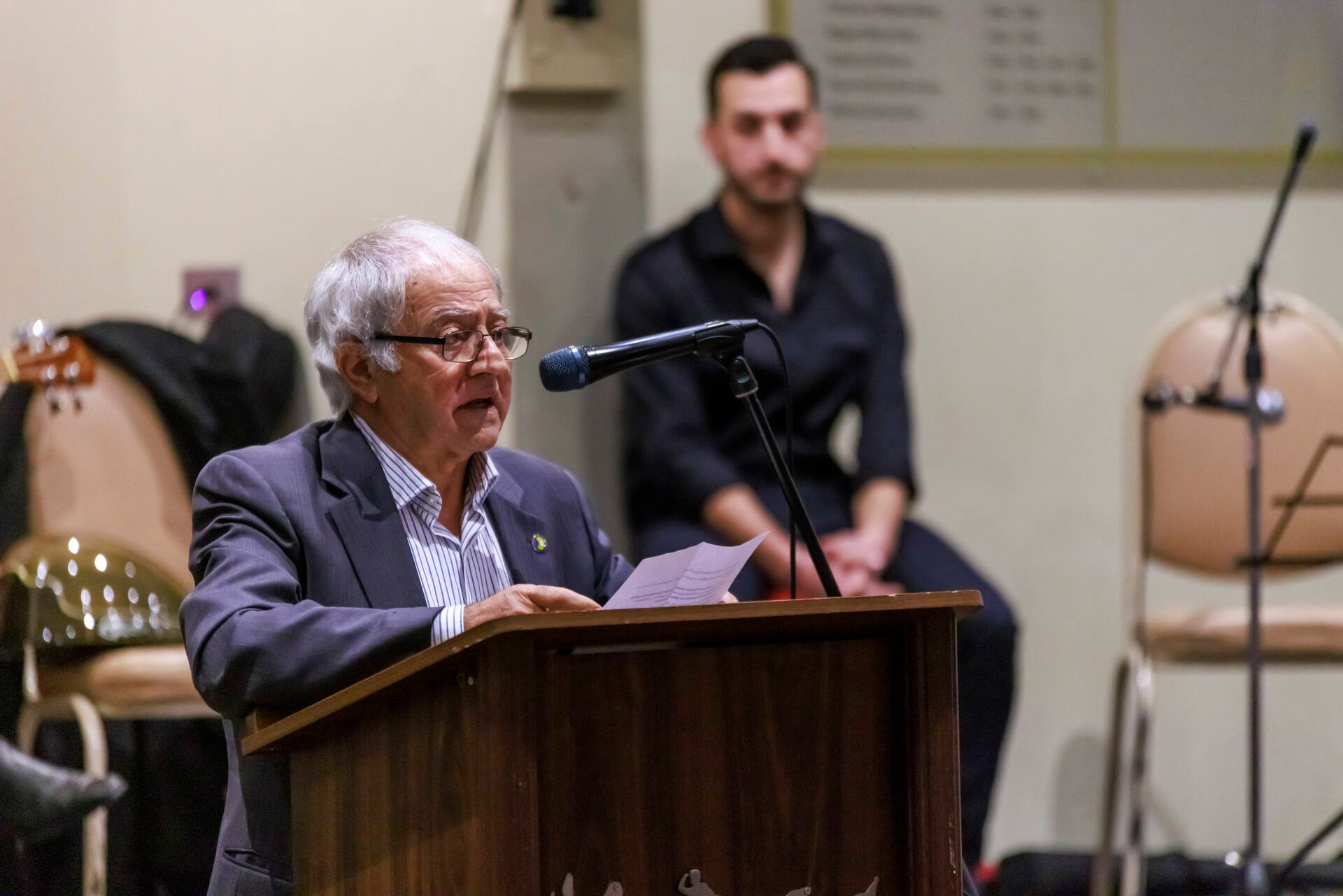
The evening commenced with a resonant rizitiko, performed with haunting solemnity by Anna Tsourdalaki, accompanied on the laouto by Giorgos Sevastakis.
The rhythmic pulse of the pentozali by the dance ensemble of the Cretan Brotherhood then filled the hall with energy and verve.
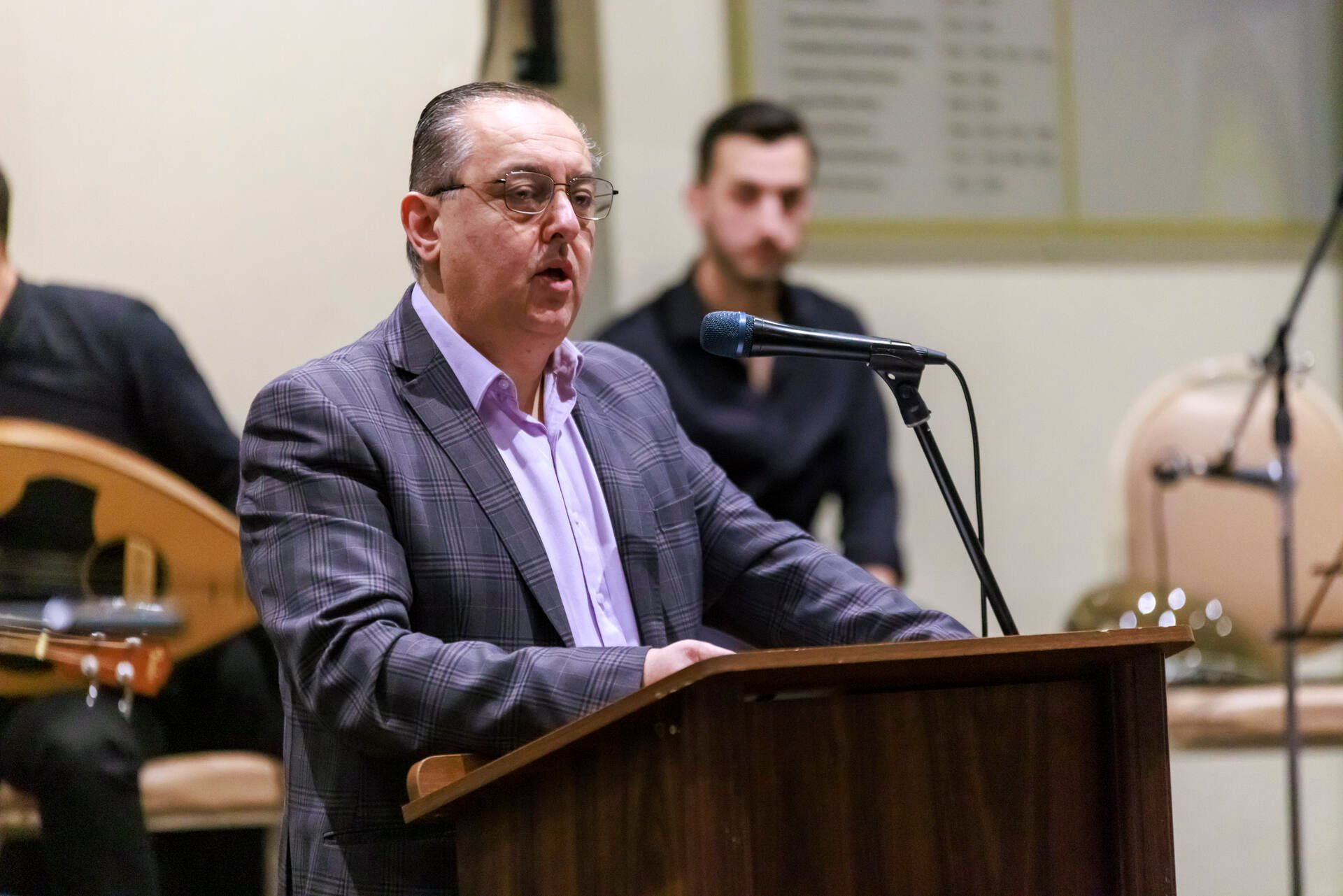
Particularly memorable were the mantinades of Antonis Tsourdalakis, composed for the occasion. In them, the traditional Cretan idiom was woven seamlessly into the artistic spirit of Hatzidakis and Theodorakis, showing that their music converses not only with cultivated sensibilities but with the deepest strata of the people’s soul.
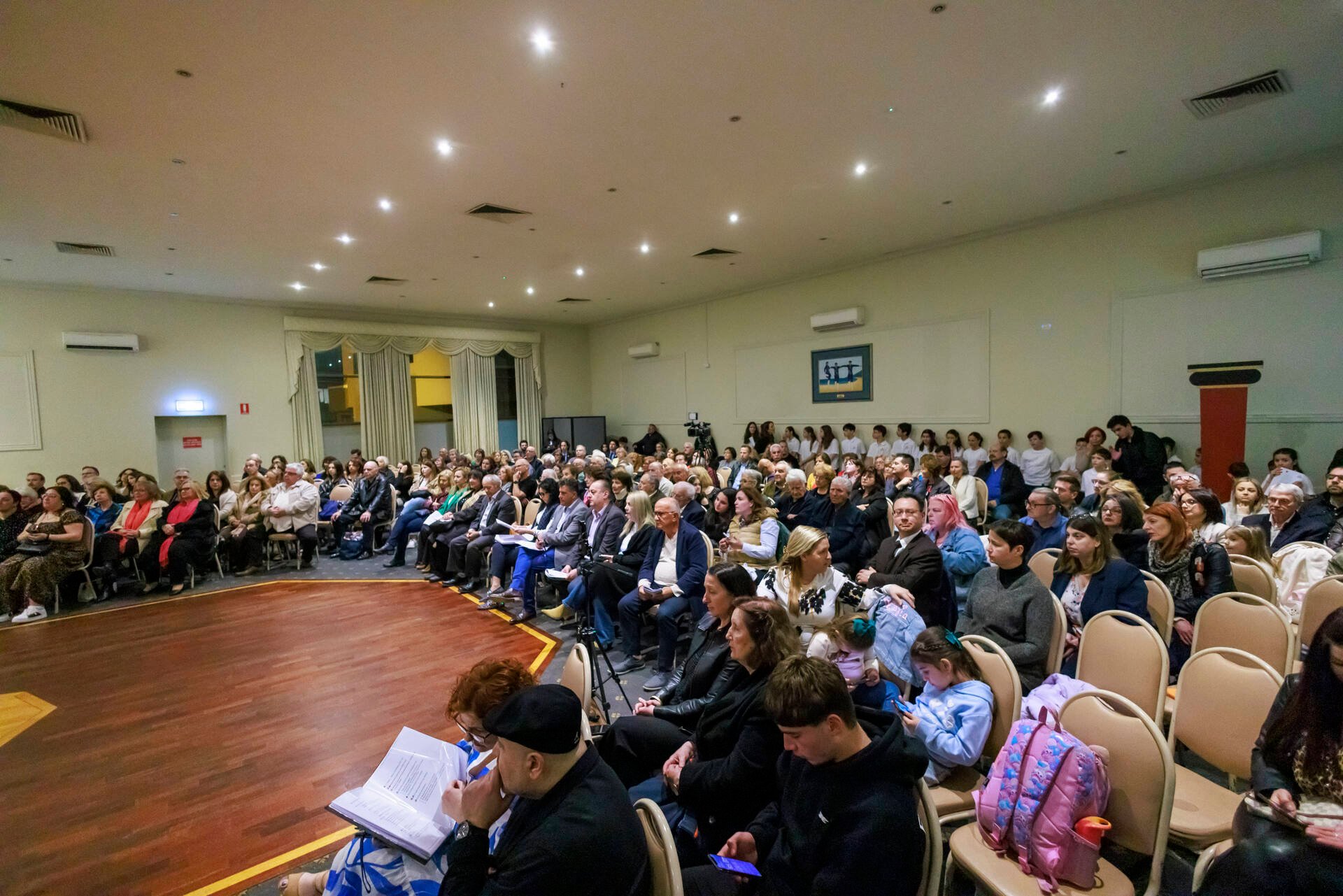
The artistic direction of Odysseas Krypotos and Evangelia Baxa endowed the programme with elegance and cohesion, while Anthi Tzani and Chara Koyioni guided the proceedings with a rare blend of dignity and warmth.
Of singular significance was the participation of students from the schools of the Greek Community of Melbourne, St John’s College, Nestoras College, and Oakleigh Grammar. Their renderings of Odos Oneiron, Kemal, Ta Paidia tou Peiraia and Chartaetoi gave voice to a younger generation, proving that the legacy of Hatzidakis and Theodorakis is not confined to memory but remains vital when passed into youthful hands and voices.
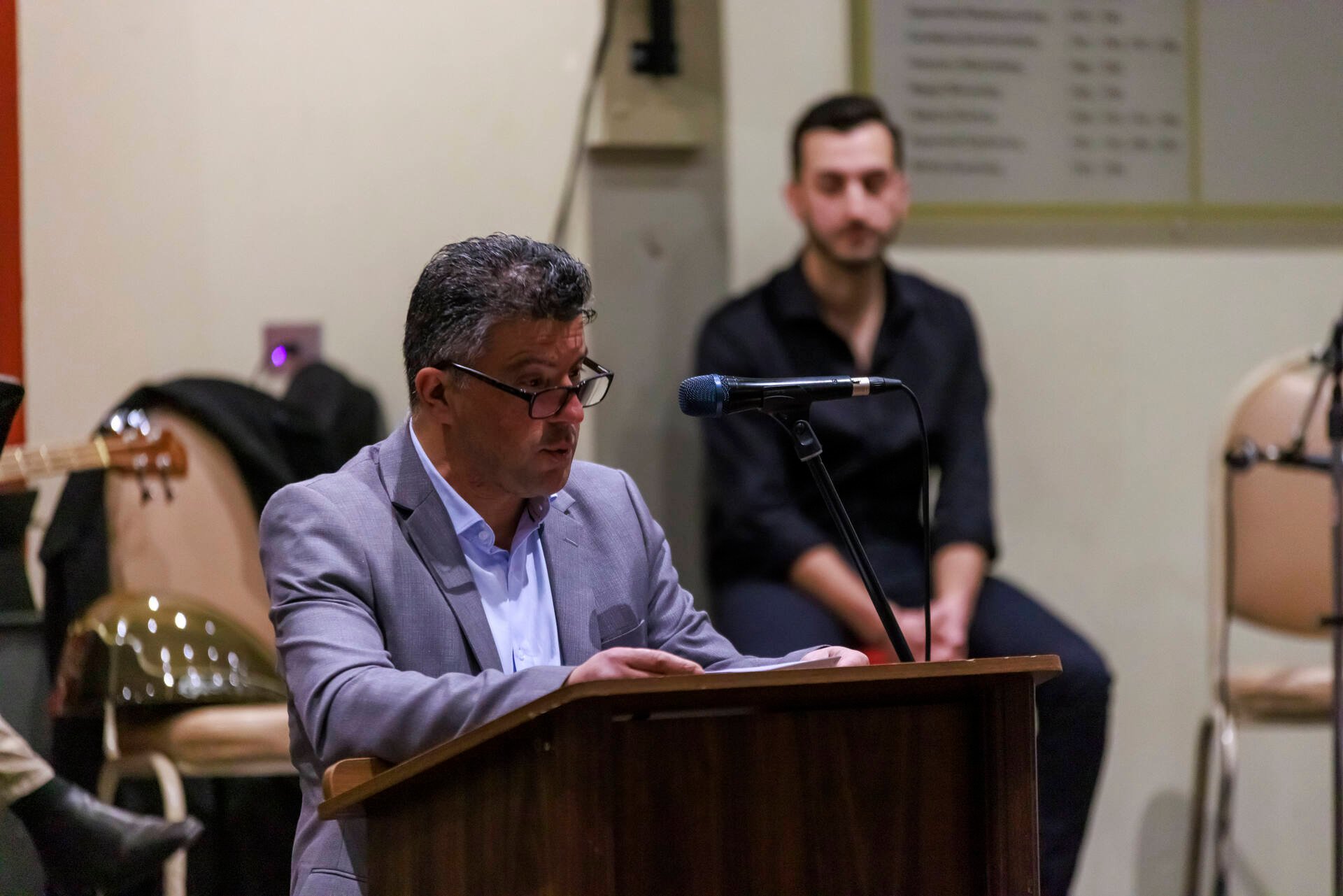
Greetings were extended by Ioannis Sahinis, President of the Hellenic Writers’ League, Miltos Stamatakos, President of the Cretan Brotherhood, and Dimitra Georgantzoglou Consul-General of Greece in Melbourne. Their words underscored the abiding importance of the two composers’ legacy and the obligation of the community to preserve its cultural inheritance through the active engagement of its members.
The contribution of Sotiris Hatzimanolis proved one of the most luminous moments of the evening. With measured eloquence, he located the oeuvre of Hatzidakis within a vast cultural and philosophical horizon, revealing the composer’s determination to move beyond the limits of mere song.
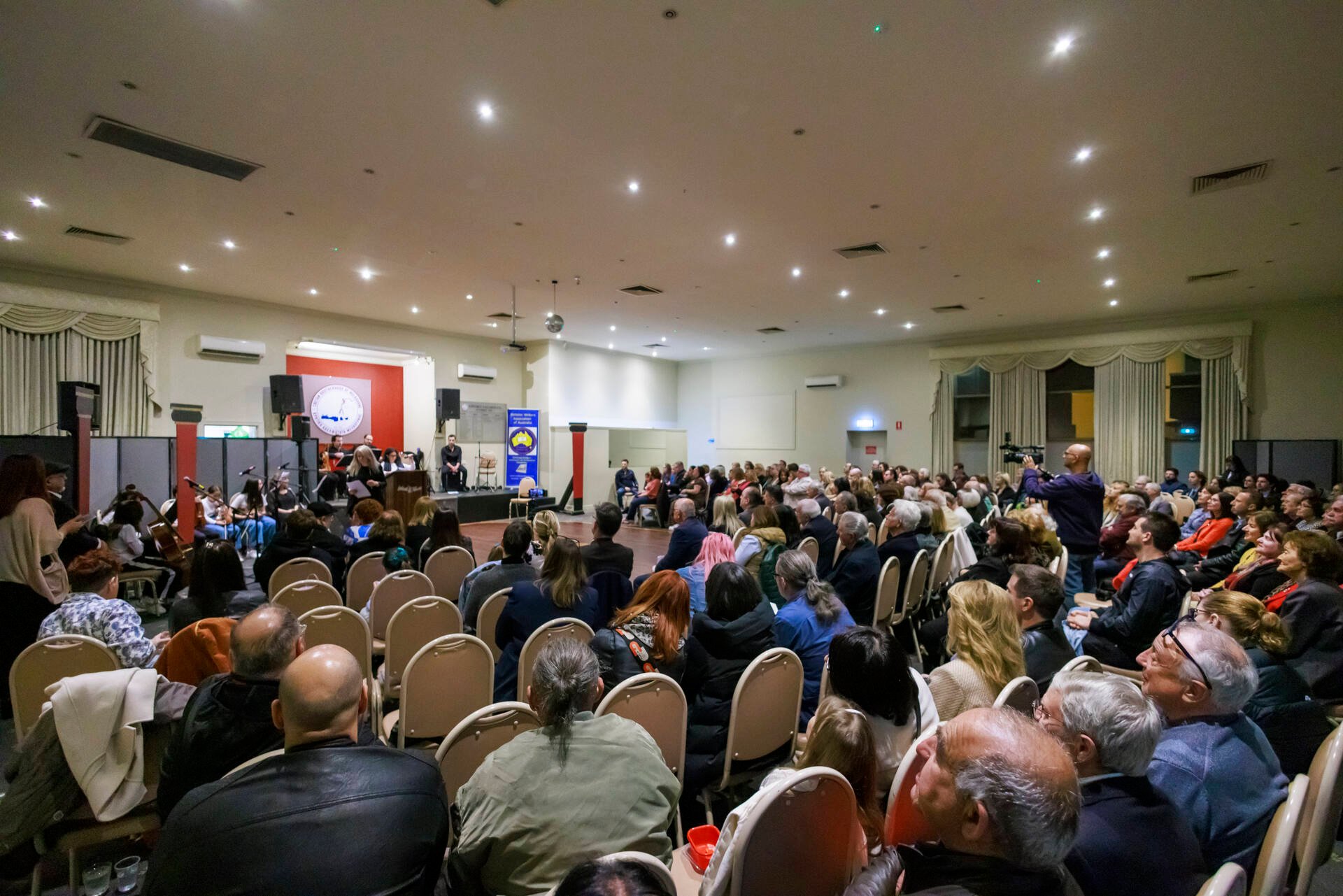
In his analysis, Hatzidakis emerged as the architect of a new aesthetic of Hellenism, one that held in creative tension the refinement of the intellect with the immediacy of popular expression, and the speculative with the quotidian. In this synthesis, the music of Hatzidakis was shown not simply to delight or console, but to function as a vehicle of cultural renewal. He stood forth not only as a composer of genius but as a public intellectual who sought, through the medium of beauty, to reimagine society and to elevate the consciousness of an entire people.
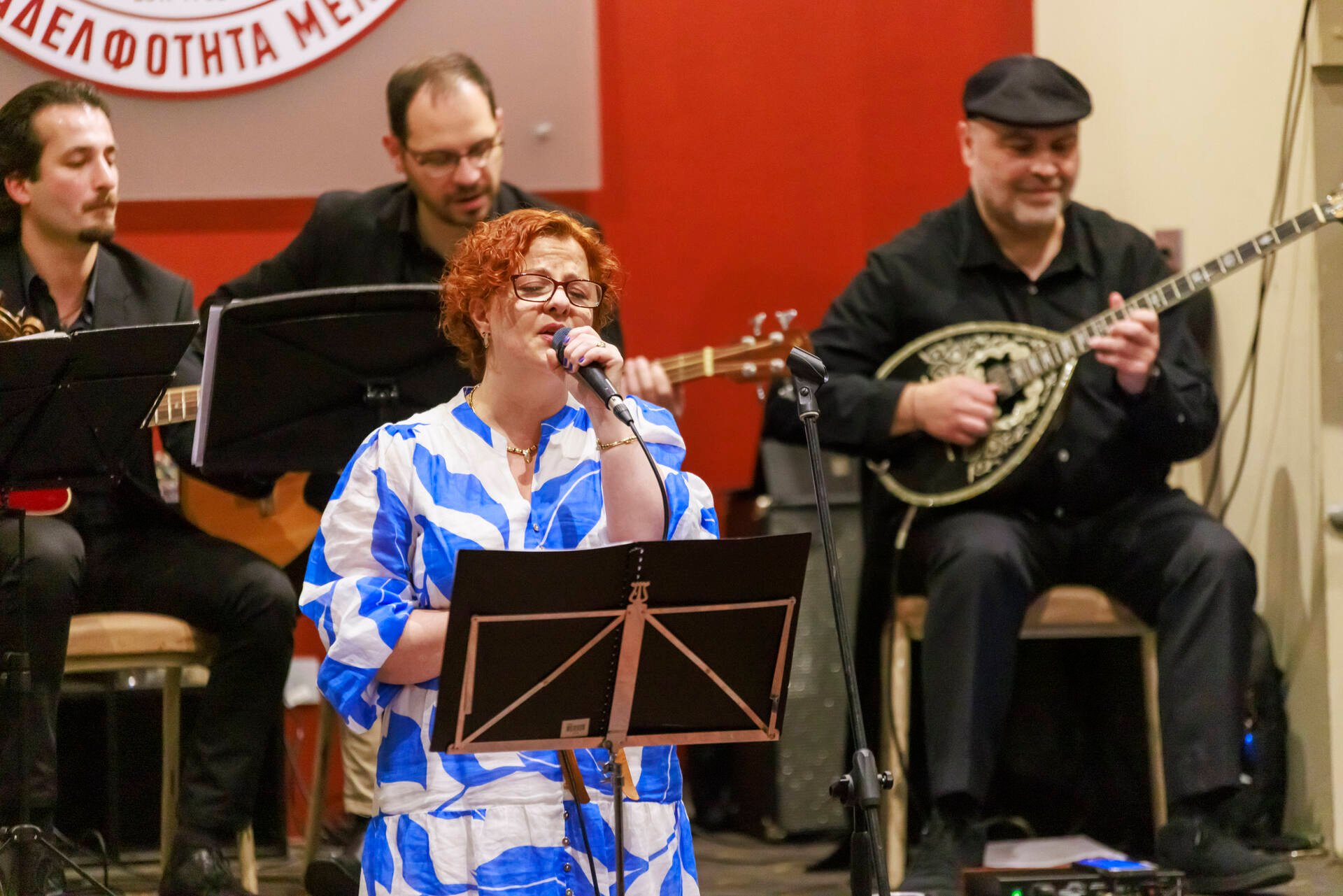
Equally compelling was the oration of Elias Diacolambrianos, who illuminated the work of Theodorakis in its political and historical dimensions. He revealed how Theodorakis’ music became a language of resistance and defiance, a repository of memory and a beacon of collective aspiration, how his melodies gave voice to entire peoples yearning for freedom and justice. Theodorakis thus appeared not merely as a musical innovator but as a presence woven into the very fabric of modern Greek history.
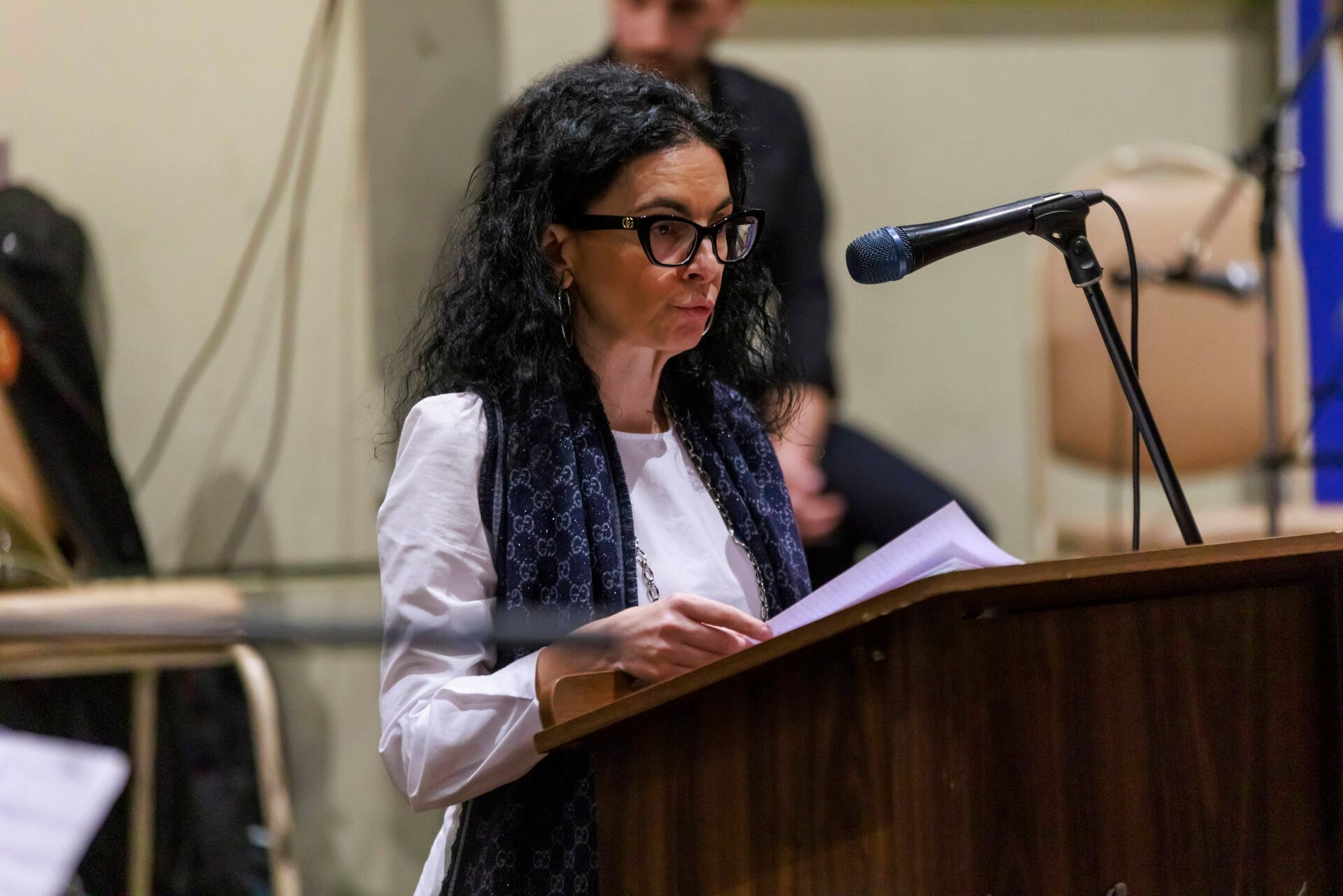
What conferred the evening with its deepest resonance was the centrality accorded to the youth, who dominated the event. Rather than being positioned as passive observers or ornamental presences, instead they were given the role of protagonists, as singers, dancers, and interpreters of meaning. In this way they were invited to enter into dialogue with the music and to claim it as their own inheritance.
The Writers’ League, by offering such a model, demonstrates both foresight and conviction: the future of the community depends upon the creative integration of its youth, so that tradition may not wither but continue as a living force.
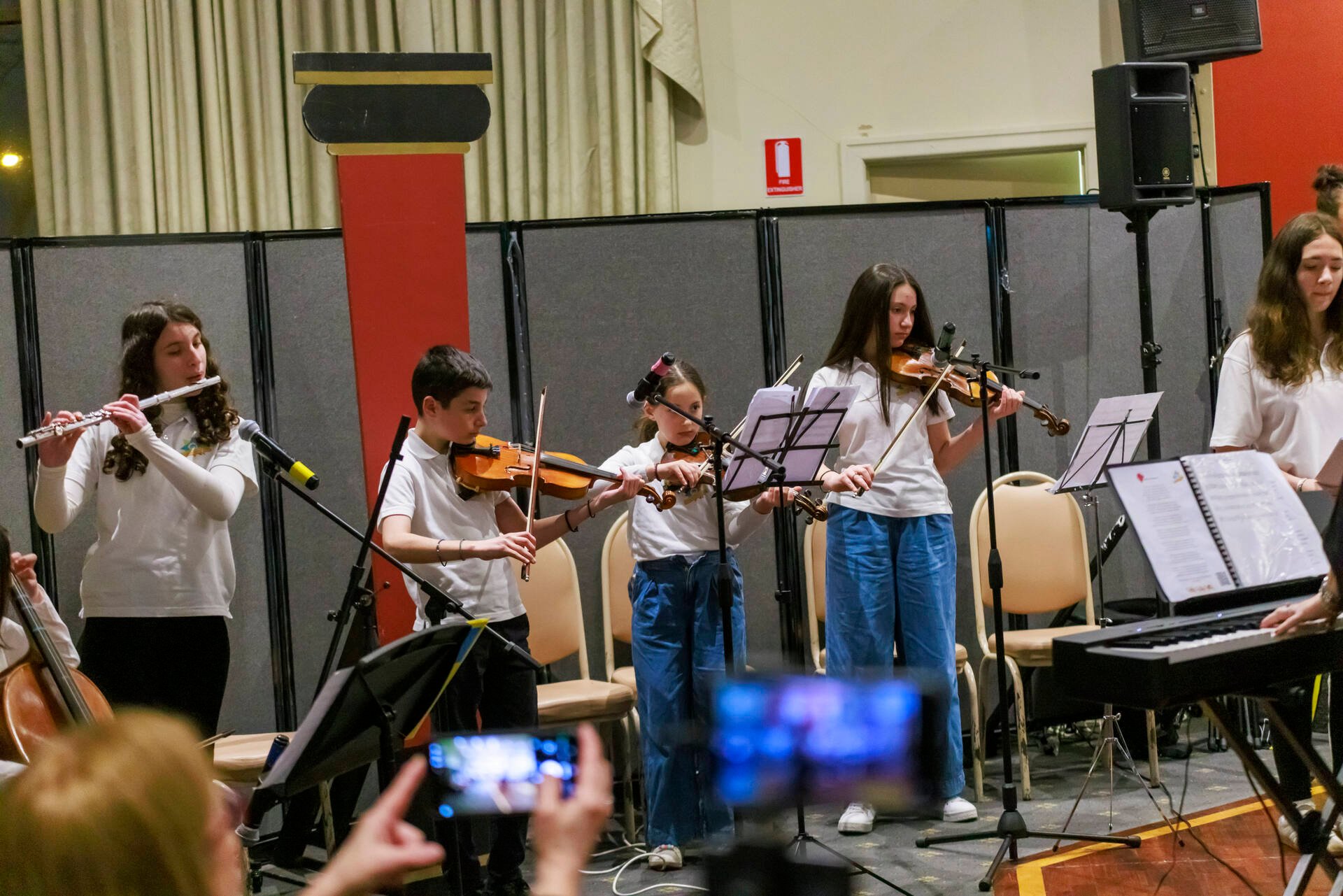
The tribute was exemplary in every aspect: meticulously conceived, executed with artistry, and suffused with reverence for the legacies of Hatzidakis and Theodorakis. More than a commemoration, it revealed once again the ability of Melbourne’s Greek community to draw upon its living energies and to produce culture that inspires, that moves, and that unites.
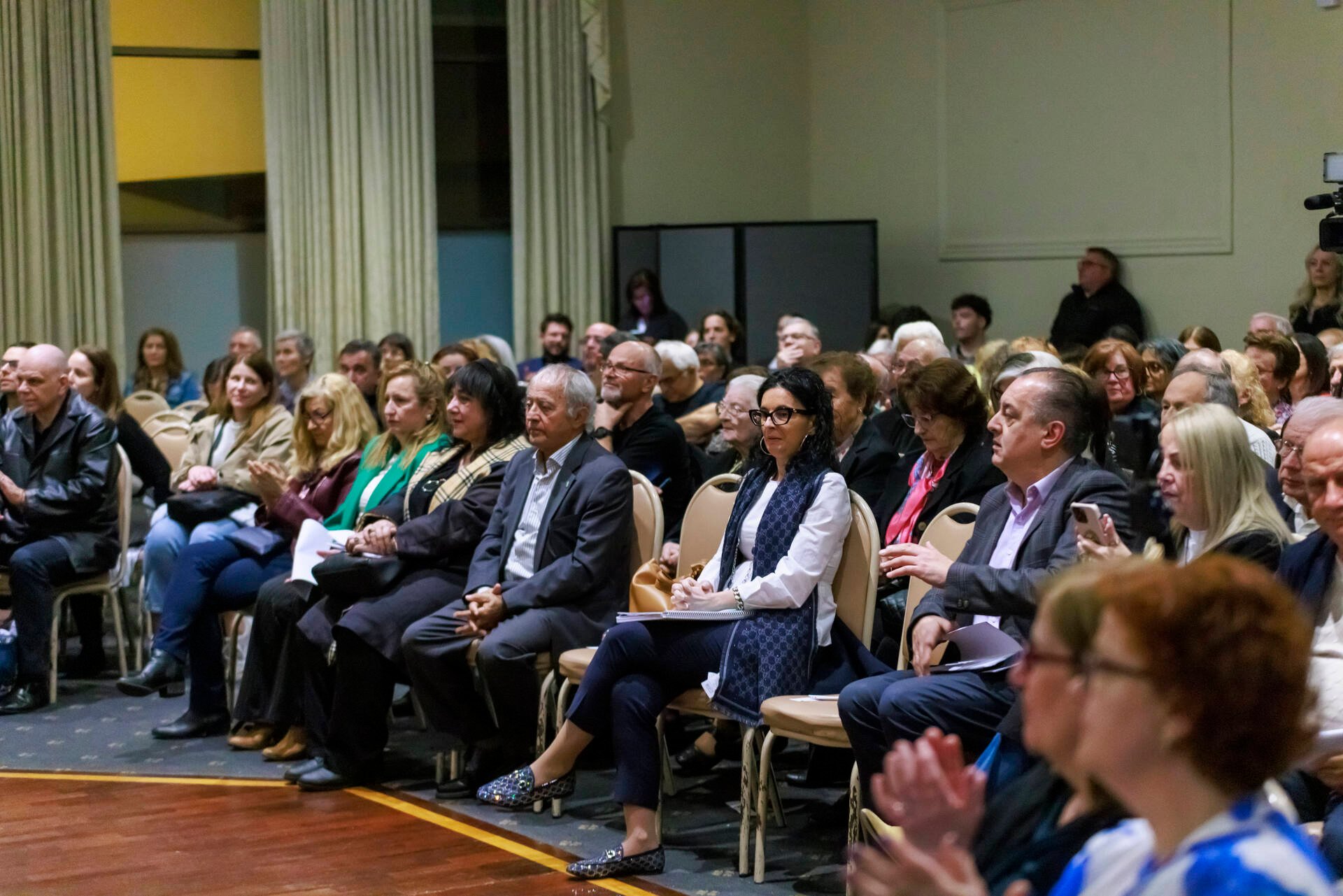
It was an evening that honoured not only two great composers but the community itself, which knows how to safeguard its memories and transmit them, alive and resonant, to generations yet unborn.
